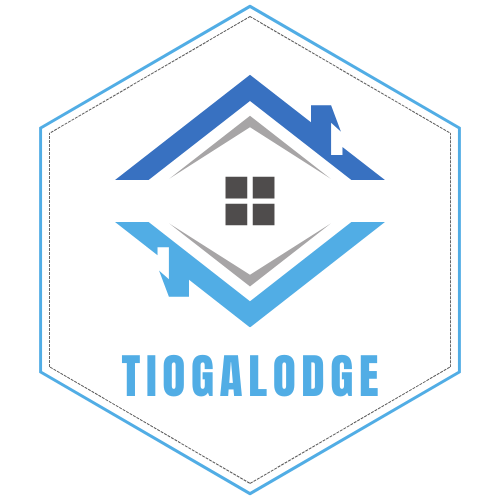Table of Contents
ToggleBuying a home in Tennessee can feel like trying to find a needle in a haystack—especially when it comes to that pesky down payment. But fear not, aspiring homeowners! Tennessee down payment assistance programs are here to save the day, making the dream of homeownership more attainable than ever.
Understanding Tennessee Down Payment Assistance
Tennessee down payment assistance programs offer vital resources for those striving to purchase homes in the state. These programs alleviate financial barriers by providing funds to cover part of the down payment.
What Is Down Payment Assistance?
Down payment assistance (DPA) refers to financial aid for homebuyers struggling with down payment costs. Programs may include grants, low-interest loans, or forgivable loans that don’t require repayment under certain conditions. Applicants often receive assistance based on income levels, credit scores, and the home’s purchase price. This support boosts access to homeownership for many residents who might otherwise face significant obstacles.
Importance of Down Payment Assistance in Tennessee
Down payment assistance plays a crucial role in promoting homeownership in Tennessee. Many individuals and families encounter difficulties saving enough for down payments, especially first-time buyers. Programs not only enhance affordability but also stimulate local economies by expanding homeownership rates. Increased homeownership contributes to community stability and growth, aiding both families and neighborhoods. Access to these funds empowers buyers to pursue their dreams of owning property in Tennessee.
Types of Down Payment Assistance Programs

Numerous down payment assistance programs exist in Tennessee, catering to various needs of homebuyers. These programs often provide crucial financial support.
State Programs
State-level programs offer valuable resources for eligible buyers. Tennessee Housing Development Agency administers the Great Choice Home Loan program, which includes down payment assistance. Grants covering up to 6% of the home’s purchase price enhance affordability for first-time buyers. Additionally, there are specific programs targeting low-income families, ensuring broader access to homeownership.
Local Programs
Local governments often create down payment assistance initiatives tailored to specific communities. Many counties and cities in Tennessee, such as Davidson and Shelby, provide assistance through grants or forgivable loans. These programs might cover a percentage of the home price or offer flat-rate amounts. Participation typically requires buyers to complete homebuyer education courses, promoting informed purchasing decisions.
Non-Profit Organizations
Non-profit organizations play a significant role in providing down payment assistance options. They often collaborate with local and state governments to expand resources. Organizations like Habitat for Humanity offer programs that help families secure affordable housing and financial assistance. Furthermore, many community development financial institutions (CDFIs) provide targeted assistance for low-income households, ensuring diverse participation in homeownership opportunities.
Eligibility Criteria for Tennessee Down Payment Assistance
Eligibility for Tennessee down payment assistance programs hinges on specific criteria that potential homeowners must meet. These requirements ensure that assistance effectively reaches those who need it most.
Income Requirements
Income limits vary depending on the specific program and household size. Many programs adhere to guidelines set by the U.S. Department of Housing and Urban Development. Generally, you may find that qualifying income thresholds range from 80% to 120% of the area median income. First-time buyers often receive priority, with additional benefits for low-income families. Local programs might also establish unique income limits, so checking with the respective government agencies is essential for accurate information.
Credit Score Considerations
Credit scores play a significant role in determining eligibility for down payment assistance. Typically, a minimum credit score of 620 is required, although some programs may accept scores as low as 580. A higher credit score enhances the likelihood of approval and better loan terms. Demonstrating responsible credit usage, such as timely payments and low credit utilization rates, also strengthens applications. Consulting with lenders about specific requirements can provide further clarity and improve the chances of securing assistance.
How to Apply for Tennessee Down Payment Assistance
Applying for Tennessee down payment assistance involves several steps. Potential homeowners must understand the application process and gather the necessary documentation.
Application Process
Start by researching available down payment assistance programs in Tennessee. Prospective applicants must identify programs that fit their needs. Then, they can complete an application form provided by the chosen program. After submitting the application, applicants often receive a determination within a few weeks. Some programs may require an interview or additional questions regarding financial status. Engaging with local housing agencies can provide valuable insights and guidance throughout the process.
Required Documentation
Gathering required documentation is essential for a successful application. Applicants usually need to provide proof of income, such as recent pay stubs or tax returns. Additionally, documentation of assets, like bank statements, helps demonstrate financial stability. Potential homeowners must also include information regarding their credit history, as credit scores play a crucial role in eligibility. Furthermore, a completed homebuyer education course certificate may be required for certain programs. Ensuring all documents are accurate and up-to-date can streamline the application process.
Benefits of Tennessee Down Payment Assistance
Tennessee down payment assistance programs offer significant advantages for aspiring homeowners. These benefits enhance financial stability and open doors to homeownership that might otherwise remain closed.
Financial Relief
Financial relief appears prominently among the benefits of these programs. Assistance usually comes in the form of grants or low-interest loans, reducing the initial housing costs. Many local initiatives cater to specific income levels, ensuring support aligns with the needs of low-income families. A typical program might cover up to 6% of a home’s purchase price, effectively decreasing the burden on buyers. Such financial aid empowers individuals and families to allocate resources towards other essential expenses like maintenance and property taxes.
Homeownership Accessibility
Homeownership accessibility improves significantly with the availability of down payment assistance. First-time buyers especially stand to benefit from the tailored programs designed to minimize barriers to entry. Specific income limits prioritize those who need support the most, such as low-income families. Completing homebuyer education courses often enhances eligibility, providing valuable knowledge. These initiatives boost the likelihood of homeownership for many interested residents in Tennessee, fostering community growth and stability.
Tennessee down payment assistance programs play a crucial role in making homeownership a reality for many aspiring buyers. By providing financial support and resources, these initiatives help overcome the significant barriers posed by down payment requirements.
With various options available at both state and local levels, potential homeowners can find tailored assistance that meets their needs. This not only empowers individuals and families but also strengthens communities by promoting stability and economic growth.
For those considering homeownership in Tennessee, exploring these programs can be a game-changer in achieving their dreams.




